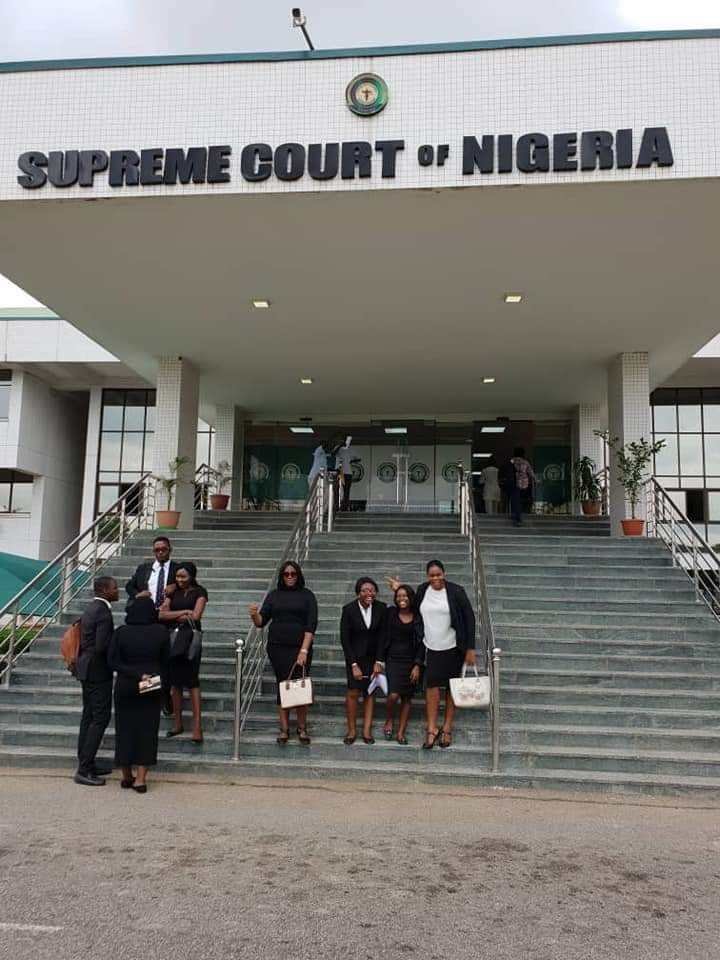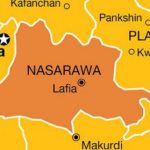The recent judgement by the Nigerian Supreme Court in favor of the Federal Government’s position on Local Government autonomy represents a monumental shift in the Nigerian political and administrative landscape. This ruling not only reinforces the principles of federalism and democracy but also promises to reshape the dynamics of governance and development at the grassroots level.
*Supreme Court Rulings*
1.Direct Allocation Payments to Local Government Councils
The Supreme Court’s decision that allocations are to be paid directly to Local Government Councils (LGCs) immediately is a decisive step towards ensuring financial independence and accountability at the local level. For too long, local governments have been at the mercy of state governments, which often resulted in the diversion and mismanagement of funds meant for local development. This ruling will enable LGCs to directly receive and manage their funds, fostering transparency and efficiency in local governance.
2.Automatic Deletion of Joint Allocation Section Without NASS Amendment
The automatic deletion of the section of the Constitution that allowed for joint allocations, without needing an amendment by the National Assembly (NASS), underscores the Court’s commitment to upholding the true spirit of the Constitution. This aspect of the ruling eliminates any ambiguity or loopholes that state governments might exploit to control local government finances. It ensures that the autonomy of local governments is not just theoretical but practical and enforceable.
3.Illegality of Caretaker Committees
The declaration that the appointment of Caretaker Committees (CTCs) is illegal and unconstitutional marks a significant victory for democratic principles. No governor now has the power to appoint these committees, which have often been used to circumvent democratic processes and maintain control over Local Governments. This ruling mandates that Local Government officials must be democratically elected, thereby strengthening grassroots democracy and ensuring that the will of the people is respected.
4.State Governors as Obstacles to Democracy
By highlighting that State Governors have constituted themselves as dangerous species to the development of democracy, the Supreme Court has addressed a critical issue head-on. The ruling sends a clear message that the era of undue interference by state executives in local government affairs must end. This will pave the way for more robust and independent local governance structures that can drive development more effectively.
*Implications for Development Areas in Nasarawa State*
The Supreme Court’s ruling raises significant questions about the existence and funding of Development Areas (DAs) in states including Nasarawa. The current practice of sharing local government statutory allocations with DAs based on State Government formulas will now be deemed illegal. This necessitates a fundamental rethinking of how these DAs are financed and managed.
*Funding Challenges and Solutions*
With the direct allocation of funds to LGCs, DAs will face financial strangulation unless new funding mechanisms are devised. The Nasarawa State Government must revisit the rationale behind the creation of DAs and develop sustainable financial strategies to support them. Potential solutions could include:
1. State Government Support: The State Government could allocate a portion of its own statutory funds to sustain DAs. This approach would ensure that DAs continue to operate and serve their intended purposes without violating the Supreme Court’s ruling.
2. Special Purpose Vehicles: Creating special purpose vehicles for financing DAs can help channel resources effectively. These could be public-private partnerships or state-funded initiatives designed to support the specific developmental goals of the DAs.
3. Efficiency and Accountability: Enhancing the efficiency and accountability of DAs will be crucial. This includes addressing issues such as ghost workers and bloated staff rolls, which have previously strained local government finances. Streamlining operations and ensuring that only necessary and legitimate expenditures are made will help maximize the impact of available resources.
*Bringing Government Closer to the Grassroots*
The creation of DAs has been one of the most effective ways of bringing government closer to the grassroots in Nasarawa State. Despite the financial challenges posed by the Supreme Court ruling, the underlying objective of making governance more accessible and responsive to the people remains valid. Therefore, it is imperative that the state government finds innovative ways to keep these structures functional.
*Sustaining Development Areas*
Even without direct allocations from the Federation Account, DAs can continue to play a vital role. The state government should explore alternative funding sources and ensure that the DAs are not abandoned. This might involve leveraging community resources, seeking donor support, and implementing cost-sharing arrangements that align with the developmental goals of the DAs.
*The Role of Local Government Chairmen*
Local Government Chairmen must be empowered to utilize their statutory allocations from the Federation Account effectively. Any interference by the State Government in the administration of these funds would undermine the very essence of the Supreme Court’s ruling and *President Bola Ahmed Tinubu’s* objectives of ensuring LGCs’ financial autonomy and entrenching democracy at the grassroots level.
*Addressing Economic and Security Challenges*
The economic strangulation of LGCs has led to a myriad of issues, including the collapse of grassroots economies and increased insecurity. Contractors and workers who depend on LGCs for their livelihoods have been left without opportunities, driving many towards illegal activities for survival. The Supreme Court’s ruling, by ensuring financial autonomy for LGCs, can help revitalize local economies and reduce the prevalence of such activities.
*Revitalizing Local Economies*
With direct access to funds, LGCs can undertake meaningful development projects that create jobs and stimulate local economies. This will not only provide livelihoods for many but also reduce the incentives for engaging in criminal activities. A vibrant local economy is essential for maintaining social stability and security.
*Nasarawa State’s Pioneering Role*
Nasarawa State, being a pioneer in the creation of DAs, has the experience and capacity to adapt to these changes. The State Government can lead by example, demonstrating how DAs can be sustained and effectively integrated into the broader framework of local governance.
*Conclusion*
The Nigerian Supreme Court’s judgement on local government autonomy is a landmark decision that promises to transform the governance landscape at the grassroots level. By ensuring direct allocation payments to LGCs, eliminating unconstitutional practices, and reinforcing democratic principles, the Court has set the stage for a more transparent, accountable, and effective local government system.
Nasarawa State, with its history of innovative local governance structures, must rise to the occasion by finding sustainable ways to fund and support its Development Areas. This will require creativity, commitment, and a willingness to adapt to new realities. In doing so, the state can continue to bring government closer to the people and drive meaningful development at the grassroots level.
The Supreme Court’s ruling is not just a victory for local governments but a triumph for democracy and federalism in Nigeria. It is an opportunity to build a more inclusive and participatory governance system that empowers local communities and fosters sustainable development across the nation.
H.E. Mohammed Auwal Atose Rtd. Ambassador






